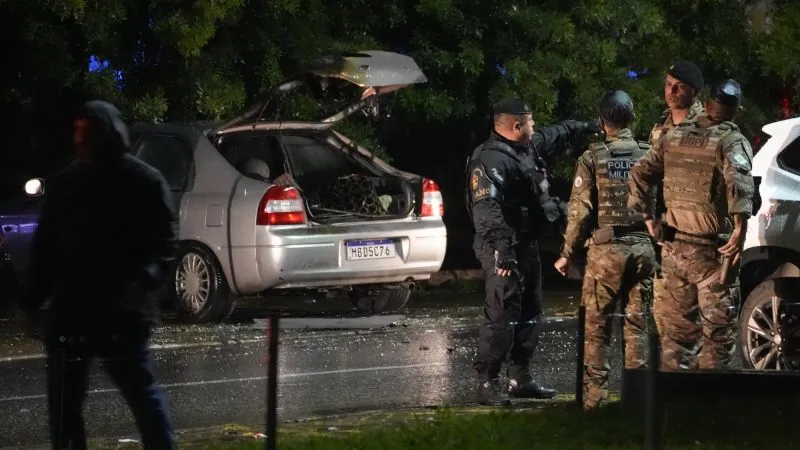
Shocking Attack at Brazil’s Supreme Court: Suicide Bomber Strikes Days Before G20 Summit
2024-11-14
Author: Jessica Wong
In a dramatic turn of events that shook the political center of Brazil, a man committed suicide while detonating explosives outside the Supreme Court on Wednesday. This alarming incident unfolded as the country prepares to welcome global leaders for the G20 summit next week, raising concerns over national security.
Shortly after 7:30 p.m. local time, authorities despatched police officers to the Three Powers Plaza, which houses the Supreme Court, the Presidency, and the National Congress. Eyewitnesses reported two explosions during the evening, originating from a car and, subsequently, outside the Supreme Court building. Fortunately, no other individuals were harmed in the blasts.
Authorities confirmed they discovered explosives and a timer attached to the man's body, prompting an extensive investigation, including X-ray assessments to ensure no further explosives posed a risk. Major Raphael van der Broocke stated, “If there are explosives, we will decide whether to cut the belt or take other measures to neutralize the threat.”
The incident, classified as a suicide attack, led to immediate evacuations of court officials and legislators. The suspect, reportedly from southern Brazil, had previously run for local office under the far-right party of former President Jair Bolsonaro, raising speculation about potential political motivations behind the attack.
In a further twist, a backpack, likely containing explosives, was discovered nearby, and police located additional explosive materials close to a traffic cone in the area, indicating that the attack may have been meticulously planned.
The timing of this violent act is particularly alarming given the upcoming visit of Chinese President Xi Jinping to Brazil on November 20, as he meets with President Luiz Inácio Lula da Silva in Brasilia. Brazil's Attorney General Jorge Messias vowed to pursue a thorough investigation into the explosions, condemning the violence against the key government institutions.
This tragic event highlights the rising tensions within Brazil, where dissatisfaction with the judiciary has been brewing. The Supreme Court has increased its involvement in politically charged cases, which many view as a safeguard for democracy, while others criticize it as an infringement on conservative viewpoints.
This attack recalls the protests and violence that erupted on January 8, when Bolsonaro supporters stormed the same area, reigniting fears over political extremism and instability in the country.
As Brazil grapples with these security challenges and internal divisions, authorities and citizens alike are left wondering how this shocking incident will impact both the immediate political landscape and the broader quest for unity and democracy in Brazil.





 Brasil (PT)
Brasil (PT)
 Canada (EN)
Canada (EN)
 Chile (ES)
Chile (ES)
 España (ES)
España (ES)
 France (FR)
France (FR)
 Hong Kong (EN)
Hong Kong (EN)
 Italia (IT)
Italia (IT)
 日本 (JA)
日本 (JA)
 Magyarország (HU)
Magyarország (HU)
 Norge (NO)
Norge (NO)
 Polska (PL)
Polska (PL)
 Schweiz (DE)
Schweiz (DE)
 Singapore (EN)
Singapore (EN)
 Sverige (SV)
Sverige (SV)
 Suomi (FI)
Suomi (FI)
 Türkiye (TR)
Türkiye (TR)